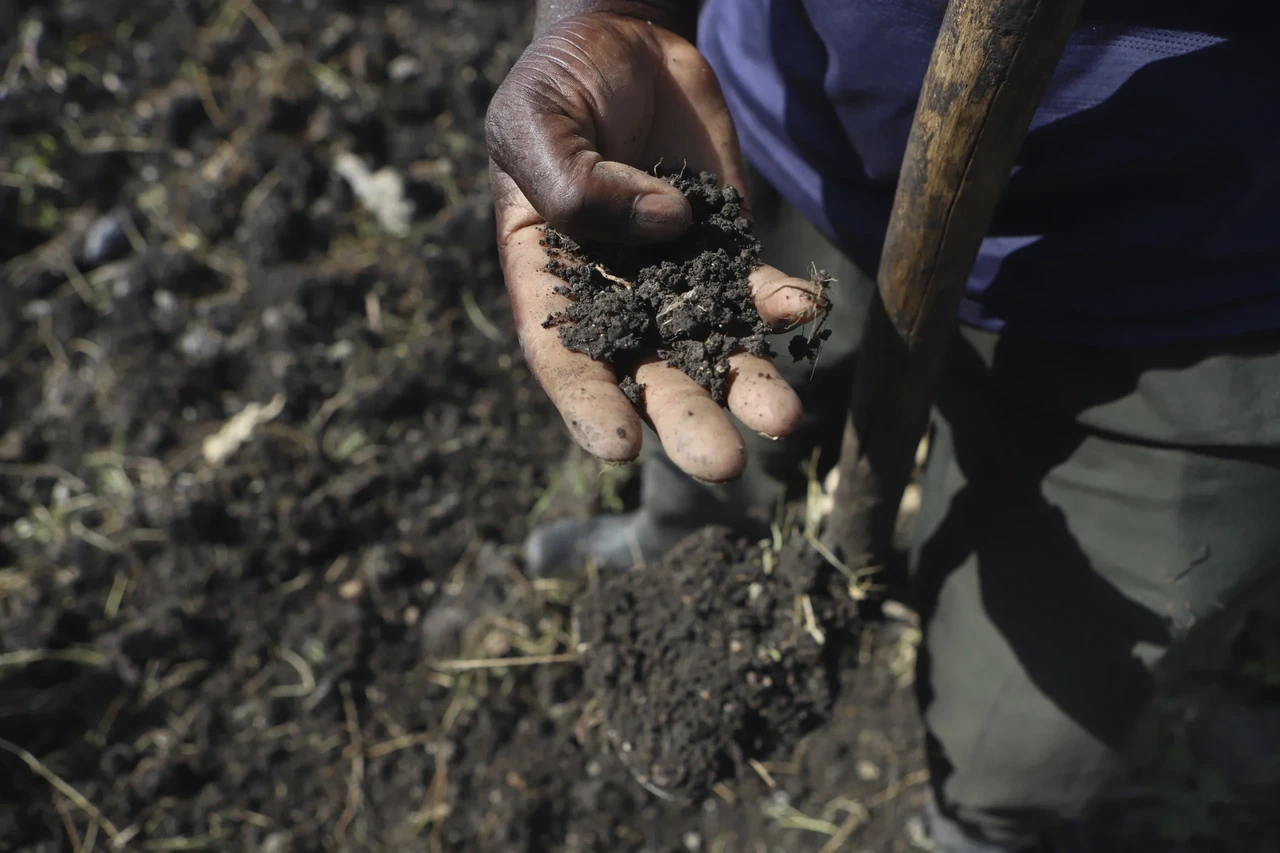Fertilizer use wrecks yields, deepens food security challenges in Africa
 Benson Wanjala sifts through a sample of soil at his farm in Machakos, Kenya, Tuesday, May 21, 2024. (Andrew Kasuku via AP Photo)
Benson Wanjala sifts through a sample of soil at his farm in Machakos, Kenya, Tuesday, May 21, 2024. (Andrew Kasuku via AP Photo)
Benson Wanjala, a farmer from western Kenya who spoke to the Associated Press (AP), recalls a time when his 10-acre farm produced an abundant harvest of 200 bags of maize.
Today, that number has plummeted to just 30 bags. The once fertile soil has turned into a lifeless field, failing to provide him with a sustainable livelihood.
Wanjala and many other farmers blame the acidifying fertilizers promoted in Kenya and other African countries in recent years. Initially, these fertilizers boosted yields, but over time, their effectiveness dwindled.
The Kenyan government introduced a fertilizer subsidy in 2008, making chemical fertilizers more accessible to small-scale farmers.
Impact of acidic soil on agriculture
According to Kenya’s Agriculture Ministry, about 63% of the country’s arable land is now acidic, leading to a decline in the production of staples like maize and key exports such as horticulture and tea. In 2022, the Food and Agriculture Organization reported that maize production dropped by 4% to 44 million tons.
The Agriculture Ministry has faced scrutiny, especially after an April scandal involving fake fertilizer, which turned out to be quarry dirt mislabeled as fertilizer. Kenya President William Ruto stated that around 7,000 farmers who bought the essential product would be compensated.
Despite possessing 65% of the world’s remaining uncultivated arable land, Africa is struggling to feed itself.
The continent spends approximately $60 billion annually on food imports, with projections suggesting this figure could rise to $110 billion by 2025 due to increased demand and changing consumption habits.
A call for traditional farming practices
In May, Kenya hosted an Africa Fertilizer and Soil Health Summit (AFSH) to address declining production and climate change issues.
Stephen Muchiri, Executive Director of the Eastern Africa Farmers Federation, advocated for a return to traditional farming practices to restore soil health. He emphasized the importance of crop rotation and using organic compost materials to replenish the soil.
“Inorganic fertilizers were never meant to be the foundation of crop production,” Muchiri stated. “Our soils are now poor, acidic, low in biomass resources, and without life!”
Experts highlight that soil acidity degrades land by reducing the availability of essential nutrients, making the soil more susceptible to erosion and structural decline.
Future Directions for soil health
Bridget Mugambe, the Program Coordinator for the Alliance for Food Sovereignty in Africa, advised phasing out chemical fertilizers and advocating a holistic approach to soil health.
The African Union’s soil health summit adopted a 10-year plan to increase investment in producing organic and chemical fertilizers locally and triple their use for better production outcomes.
Due to low local production, Kenya relies heavily on imported fertilizers from the European Union, Saudi Arabia and Russia.
Despite the recent fertilizer scandal, John Macharia, Kenya manager for the Alliance for a Green Revolution in Africa, urged farmers to continue working with the government to ensure suitable fertilizers are available.
Challenges across Africa
Declining soil quality is a concern across Africa. In Zimbabwe, about 70% of soils are acidic, and the introduction of chemical fertilizers is causing a decline in organic matter.



